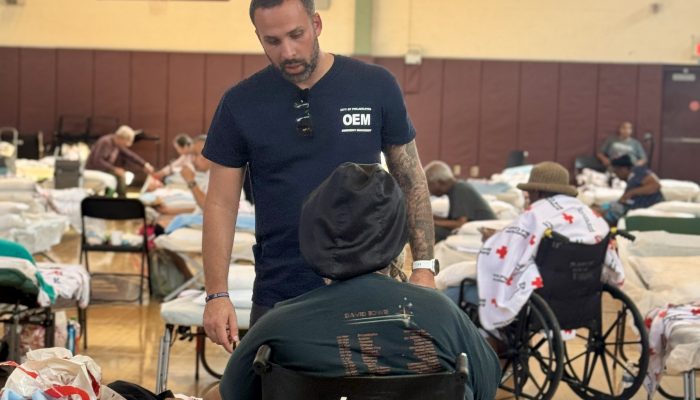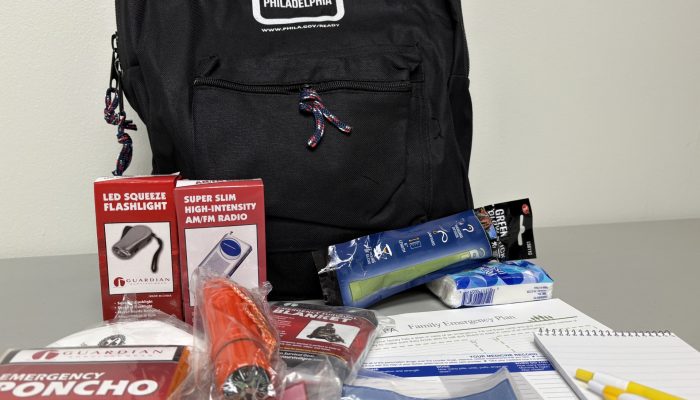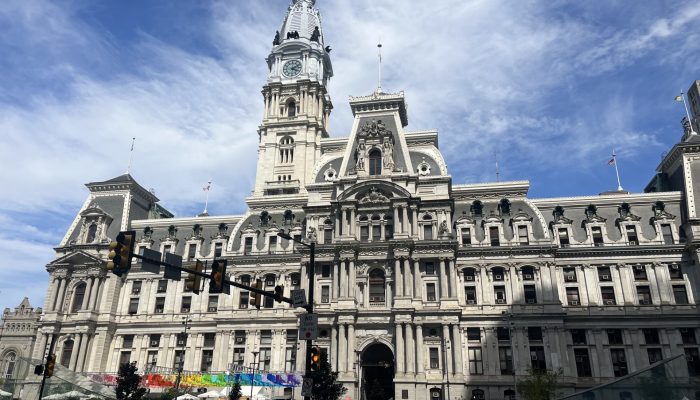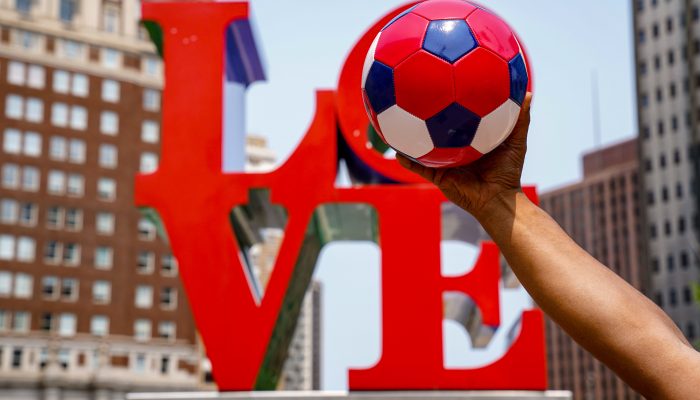BY ADINA KARTEN, OEM Disability and Access and Functional Needs Planning Coordinator
The Americans with Disabilities Act was signed into law on July 26, 1990, providing a legal framework to ensure people with disabilities have access to the same facilities and resources as the rest of the population, including education, work, transportation, medical, and communication services.
The City of Philadelphia’s Office of Emergency Management responds to the needs of Philadelphians before, during, and after emergencies.
As the Disability, Access and Functional Needs Planning Coordinator, my role focuses on ensuring all people have access to the services and resources they need to function. Since emergencies are unpredictable by nature, OEM uses a flexible framework to continually reassess the needs of communities affected by crisis as the disaster unfolds. My role operates under the following assumptions:
- Everyone has needs and wholesale solutions leave people behind.
- Populations with existing needs will face disproportional impacts following a disaster unless addressed.
- Additional needs may emerge during a disaster that impact individuals’ and communities’ access to the resources they need to function.
- City and community services may be able to mitigate secondary hazard impacts if needs are identified.
- Addressing needs in a timely manner can mitigate future impacts.
I spend a lot of time planning for the City’s response to large-scale crisis: I think about what people need to recover from an emergency so that people can exit crisis mode. If someone is already facing a crisis before a large-scale, Philadelphia-wide disaster, the individual and their community will have an even harder time responding to the needs triggered by any upcoming disaster. Getting people access to inclusive services before a disaster follows the same principles of hazard mitigation that OEM uses to position the city to be as prepared as possible for future emergencies.
Hazard mitigation means doing things that help stop or reduce damage from disasters like floods, extreme heat, or fires before they happen. It’s like putting on a seatbelt before a car ride—you’re not planning to crash, but you want to be safe just in case. Philadelphia works to figure out what kinds of disasters might happen and then make smart choices, like increase the number of trees to keep neighborhoods cooler, or elevating homes to prevent flood damage. These actions help keep people safe, protect homes and schools, and save money too. Instead of fixing everything after a disaster hits, hazard mitigation is about being prepared and protecting what matters most, so that we don’t have to rebuild it after a disaster hits.
That’s why I’m so pleased to share the ways the City of Philadelphia has committed to making numerous improvements to the City’s Office of Homeless Services system, which provides housing assistance services for people who are experiencing homelessness and those at risk of homelessness.
(This differs from the Office of Emergency Management’s emergency sheltering services, which provide temporary and emergency sheltering for residents facing temporary displacement in an emergency or disaster situation).
Training
The City has implemented disability training for shelter staff and administrators and committed to integrating disability training as an ongoing part of staff training going forward. Training topics included disability, accessibility, reasonable accommodations, and service animals.
Accommodations
The City has implemented a reasonable accommodations process initiated by asking all shelter participants if they need reasonable accommodations during the shelter placement assessment process at City intake centers.
Service Animals
The City has updated its policy on service animals to make clear when such animals are permitted in shelters, consistent with the Americans with Disabilities Act and Fair Housing Act. The updated policy also makes clear that such animals cannot be kept out of shelter due to reasons like staff allergies or fear of dogs.
Video Remote Interpreting (VRI)
The City has a brand-new contract with a Video Remote Interpreting provider that can provide live interpretation services in American Sign Language (ASL). This service allows the City to provide interpretation services on-demand for individuals who are Deaf or Hard of Hearing.
Accessibility Survey
The City has contracted support to conduct a survey to analyze the physical accessibility of up to forty-five (45) shelters throughout the City. When complete, the report will detail findings with recommendations to improve accessibility in OHS facilities. The accessibility survey is ongoing and is expected to wrap up in 2026.
To get help for someone who is sleeping outdoors, anyone may call the Homeless Street Outreach Hotline at (215) 232-1984 and request a team to offer shelter services and transportation to an intake center where staff will find and assign them to shelter based on their needs.




